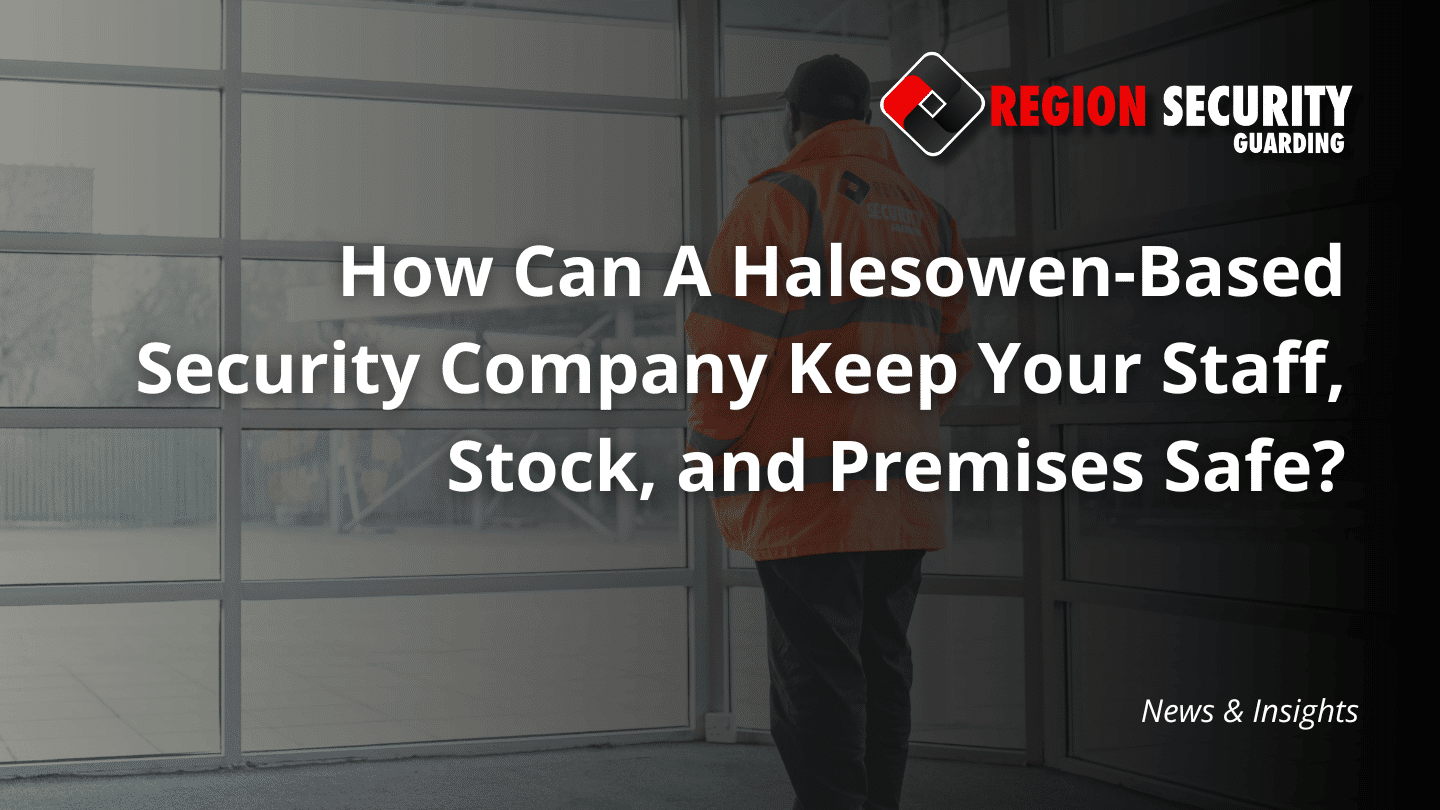The main responsibility of a security guard is to protect people and businesses, which means they must be ready to respond to a variety of situations. Recently, reports of violence against security guards have made headlines, raising an important question: do security guards wear body armour?
In this article, we’ll explore this topic in depth. We’ll discuss whether it’s legal to wear body armour in the UK, explain what body armour is made of, and examine whether bodyguards typically wear bulletproof vests.
Table of Contents

What is Body Armour?
Body armour is a widely used form of protective gear across various professions, including the police and the army. It serves an additional layer of defence, designed to shield individuals from physical harm and attacks. There are several types of body armour, each tailored to protect against specific threats. These include:
- Security Bulletproof Vests: Designed to protect against gunfire.
- Stab-Proof Vests: Intended to defend against stabbing or slashing attacks.
- Plate Armour: Often heavier and designed to provide robust protection from a variety of physical threats.
What is Body Armour Made Of?
A common question about security body armour is what materials it’s made from. The answer depends on the type of armour. Plate armour, for example, is typically crafted from strong metals like steel, offering solid protection against physical impacts. In contrast, bulletproof and stab-proof vests are usually made from lightweight yet durable woven fabrics, such as Kevlar and Aramid. These materials provide effective defence against bullets and stabbing attacks, while remaining flexible and comfortable for wear.

Is it Illegal to Wear Body Armour in the UK?
In the UK, it is legal to buy and wear body armour, and individuals, including security guards, are permitted to wear it in public. However, it’s important to note that body armour must not be used for illegal activities. While there are no widespread restrictions on its use, specific exceptions may apply depending on the situation or location.
Does Body Armour Work?
In recent years, security bulletproof vests and body armour have become increasingly common, with many professionals, such as police officers, wearing them during every shift. This widespread use has led many to question how effective body armour really is.
Body armour is indeed highly effective and has saved numerous lives, making it a valuable asset in security. However, it’s important to understand that while body armour provides significant protection, it is not fool proof. It is not 100% bulletproof or stab-proof, meaning that individuals can still sustain injuries, even when wearing it.
What Do Security Guards Wear?
Before discussing whether security guards wear body armour or bulletproof vests, it’s helpful to first clarify what guards typically wear. A security guard’s uniform can vary depending on their work environment. For example, a guard working in a retail store or office may wear more formal attire, while one stationed at a construction site will likely wear more practical, durable clothing.
In general, most security guards wear a shirt or polo shirt paired with plain trousers. They often layer this with a jumper for warmth or a suit jacket if working in a more professional setting. Comfortable, supportive shoes are essential since guards spend long hours on their feet. The shoes should also be waterproof and have good grip to prevent slipping, particularly in wet or slippery conditions.
At sites like factories, warehouses, or construction zones, security guards need additional protection. Safety boots with composite toe caps are typically preferred over steel toe caps, as they are less likely to cause injury to others. Guards working in construction environments may also wear helmets in compliance with health and safety regulations.
For those working outdoors or in dark conditions, warm, waterproof jackets are necessary for protection from the elements, along with waterproof over-trousers. In low-light environments, high-visibility (hi-vis) jackets improve visibility, while hats or beanies offer added warmth.
Many security companies provide staff with branded uniforms, which helps identify security personnel for business owners, customers, and even potential troublemakers. Branded clothing also enhances the company’s professional image.
Can Security Guards Wear Body Armour?
Yes, security officers can wear protective clothing, such as body armour, but several factors influence this decision. These include the nature of the job, the security guard’s personal choice, and the policies of the security company employing them. Ultimately, whether body armour is worn depends on the level of risk involved in the role and the employer’s requirements.
Do Security Guards Wear Body Armour?
Yes, security guards wear body armour, and other types of protective clothing. However, this often depends on the level of threat they face. While basic body armours typically cover the torso, there are also variations designed to protect a larger portion of the body, offering additional protection in higher-risk scenarios.
Body armour is generally worn in high-risk situations where there is a significant threat of physical harm. In such cases, protection becomes a priority. However, in lower-risk environments, body armour is usually not necessary, and other, more practical forms of protective gear are typically preferred.

Should Security Guards Wear Body Armour?
The Centre for the Protection of National Infrastructure, in its report on body armour for security officers, advises that security managers consult with local police forces to assess potential threats and risks to their staff. This helps determine if body armour is necessary.
The specific role of the security guard is also a key factor. Guards who are patrolling and have their bodies exposed to potential threats may face higher risks than those working in more secure environments, such as offices or vehicles.
Before deciding if body armour is appropriate, it’s important to carefully assess the situation and environment to determine the level of protection required.
Do Security Guards Wear Protective Vests?
In recent years, the number of security guards attacked with weapons has risen significantly. Reports show that 51% of security guards experience verbal abuse every time they work, and 36% claim they are physically attacked at least once a month. These statistics underscore the constant risks security officers face on the job.
To mitigate these dangers, many security guards wear stab and bulletproof vests, which offer some level of protection. These vests can be worn either over or under clothing, depending on the guard’s preference. However, some guards choose not to wear them due to the discomfort and weight they can cause.
Should Security Guards Wear Protective Vests?
The choice to wear a protective vest is usually up to the security guard or guided by the policies of the security company they work for. While these vests are effective at protecting against stabbings and gunshots, they typically only cover the torso, leaving other parts of the body unprotected. This is where full-body armour becomes beneficial, providing more extensive protection for the entire body.
Do Bodyguards Wear Bulletproof Vests?
Some security guards choose to specialise in close protection, becoming bodyguards. These professionals provide a range of security services to individual clients or small groups. Unlike traditional security roles, a close protection officer’s primary responsibility is ensuring safety and support in high-risk, close-contact situations. To perform effectively, they must remain in peak physical condition to respond quickly and avoid injury.
Yes. Close protection officers often rely on specialised body armour designed to meet the demands of their environment, balancing protection with mobility. If they believe their client faces a significant threats, they may opt to wear a bulletproof vest for additional safety.
However, bulletproof vests and body armour are often heavy and can limit a bodyguard’s mobility. As a result, if they don’t perceive a significant risk of being shot, they may opt for a lighter protective vest that offers some protection without compromising their agility.
Is it Illegal to Walk Around With a Bulletproof Vest On?
In the UK, it is entirely legal for individuals, including security guards and bodyguards, to wear bulletproof vests in public. However, these professionals typically do not wear vests as part of their everyday attire. Instead, they only use them in situations where there is a clear and heightened risk requiring extra protection.
So, Do Security Guards Wear Body Armour?
Yes, security guards can wear body armour, as it can be crucial in protecting lives. However, the decision to use protective vests or body armour ultimately rests with both the security companies and the guards. It’s important to carefully assess the potential risks of attack and determine how body armour can enhance safety in each situation.
For the latest updates on security guard practices and equipment, visit our news and insights page. You’ll find articles covering topics like What Are Security Guards Allowed to Carry? and What Equipment Do Security Guards Use?
Business Security You Can Rely On
Trusted by leading businesses nationwide for reliable, 24/7 protection.
or call 0330 912 2033

We have used Region security for quite a while now. Top notch service, great guards and helpful staff. We love our guards and the team for all of their help / work. No need to try the other companies at all."
Andy Yeomans - Jones Skips Ltd
Great company, professional services, friendly guards and helpful at times when required."
Rob Pell - Site Manager
A professional and reliable service. Always easy to contact and has never let us down with cover. No hesitation in recommending and competitively priced also. After using an unreliable costly company for several years it is a pleasure to do business with Region Security"
Jane Meier - Manager
Region Security were very helpful in providing security for our building. We had overnight security for around 4 months. The guards themselves were professional, easy to reach and adapted very well to our specific needs. Would definitely recommend Region for security needs.
Lambert Smith Hampton
Great service. Reliable and professional and our lovely security guard Hussein was so helpful, friendly but assertive with patients when needed. He quickly became a part of our team and we would love to keep him! Will definitely use this company again
East Trees Health Centre
Fantastic Service from start to finish with helpful, polite accommodating staff, we have used Region Security a few times now and always been happy with what they provide.
Leah Ramsden - Manager




